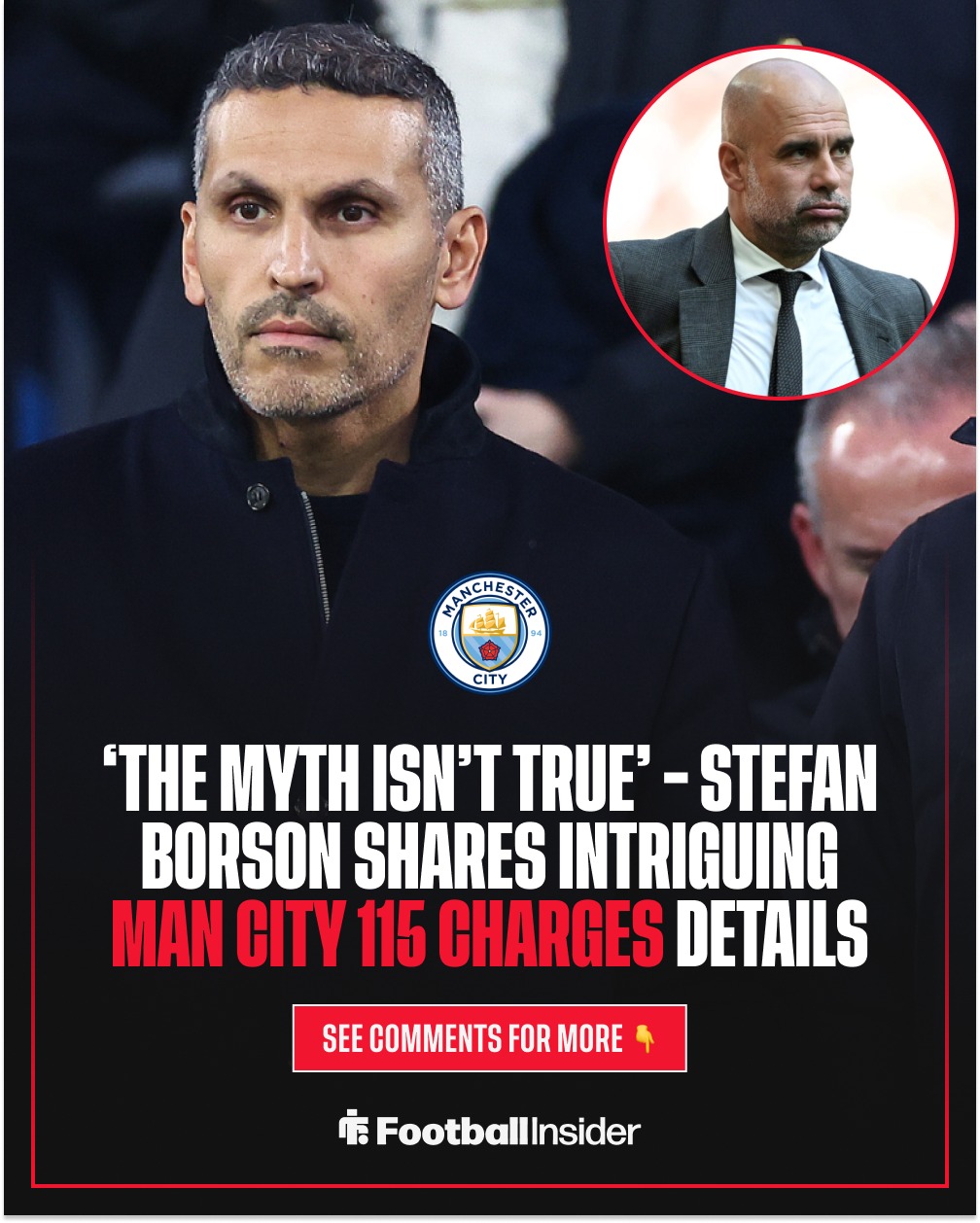Manchester City 115 Charges: Financial Expert Dispels Legal Cost Myths in Landmark FFP Case

Manchester City’s ongoing battle with the Premier League over 115 alleged Financial Fair Play (FFP) violations has become one of the most scrutinized cases in modern football history. As the football world awaits the verdict from an independent commission, misconceptions about the financial dynamics of this legal battle continue to circulate. Recent insights from Stefan Borson, a former financial adviser to Manchester City, have shed new light on the reality of legal expenditures in this high-stakes case, challenging popular narratives about the club’s supposed financial advantages in their legal defense.
The Genesis of the 115 Charges
The saga began in February 2023 when the Premier League formally charged Manchester City with 115 breaches of Financial Fair Play rules spanning a nine-year period from 2009 to 2018. These charges represent one of the most comprehensive investigations into a football club’s financial practices in Premier League history, covering nearly a decade of the club’s operations during their rise to prominence under Sheikh Mansour’s ownership.
The allegations center on several key areas of concern. Primarily, Manchester City is accused of concealing payments through third-party entities, effectively disguising what should have been recorded as direct club expenditures as sponsorship revenue. This practice, if proven, would represent a fundamental breach of FFP regulations designed to ensure clubs operate within sustainable financial parameters.
The charges also encompass allegations of providing misleading financial information to Premier League officials and UEFA, the European football governing body. These accusations suggest a systematic approach to circumventing financial regulations, potentially involving complex financial structures designed to present a more favorable financial position than the club’s true economic reality.
Additionally, the club faces charges related to failing to cooperate fully with Premier League investigations. This aspect of the case highlights the ongoing tension between regulatory bodies seeking transparency and clubs attempting to protect what they consider commercially sensitive information.
The Scale and Complexity of the Legal Process
The independent commission hearing that will determine Manchester City’s fate represents a legal process of unprecedented scale in football governance. The hearing commenced in September of the previous year and concluded in December, spanning several months of intensive legal proceedings. The duration of these hearings alone indicates the complexity and volume of evidence being considered by the independent panel.
The commission’s deliberations involve examining nearly a decade of financial records, contracts, correspondence, and other documentation. This massive undertaking requires legal experts to navigate complex financial structures, international business arrangements, and the intricate web of modern football’s commercial landscape. The panel must determine not only whether violations occurred but also assess the intent behind various financial arrangements and the appropriate sanctions if breaches are confirmed.
The prolonged nature of the decision-making process has created uncertainty throughout the Premier League. Club executives, players, managers, and fans all await a verdict that could have far-reaching implications for the competitive balance of English football and the future of financial regulation in the sport.
Financial Realities: Debunking the Cost Myths
One of the most persistent narratives surrounding the Manchester City case has been the assumption that the club’s vast financial resources would give them an insurmountable advantage in legal proceedings. Stefan Borson, drawing from his extensive experience as a former financial adviser to Manchester City, has challenged this perception with detailed insights into the actual financial dynamics at play.
According to Borson’s analysis, Manchester City is investing approximately £25 million in their legal defense, a substantial sum that reflects the gravity of the charges and the club’s commitment to mounting a comprehensive defense. However, contrary to popular belief, the Premier League’s legal expenditure is expected to be comparable, effectively creating a level playing field in terms of legal resources.
The Premier League’s financial structure provides significant advantages in funding complex legal proceedings. As Borson explains, the organization has access to its entire operational budget, with legal expenses being deducted before revenue distribution to member clubs. This arrangement ensures that the Premier League can match any reasonable level of legal spending by individual clubs, regardless of their financial capacity.
The legal teams assembled by both sides reflect this financial parity. The Premier League has engaged prestigious law firms such as Linklaters, known for their expertise in complex commercial litigation. These firms command premium rates, with some partners billing over £1,000 per hour for their services. The quality and cost of legal representation on both sides demonstrate that this case represents a battle between equally well-resourced legal teams.
The Legal Arsenal: Barristers and King’s Counsel
The complexity of the Manchester City case has necessitated the involvement of multiple senior barristers on both sides. Borson reveals that approximately six to seven barristers are working for each party, including two to three King’s Counsel (KCs), representing the pinnacle of legal expertise in the English legal system.
King’s Counsel appointments signify barristers who have demonstrated exceptional competence and experience in their field. Their involvement in this case underscores both the legal complexity of the issues at stake and the high-stakes nature of the proceedings. These senior legal figures bring decades of experience in commercial law, sports regulation, and complex financial disputes.
The presence of multiple barristers allows for specialization within the legal teams. Different counsel can focus on specific aspects of the case, such as financial regulations, contract law, evidence analysis, and procedural matters. This division of labor ensures that every element of the complex case receives expert attention.
The financial commitment required to retain such high-caliber legal representation demonstrates that both Manchester City and the Premier League view this case as a defining moment for football governance and regulation. The outcome will likely establish precedents for future FFP enforcement and influence how clubs structure their financial arrangements.
Broader Implications for Financial Fair Play
The Manchester City case represents more than just a dispute between one club and the Premier League; it’s a test of the entire Financial Fair Play framework that has governed European football for over a decade. The outcome will significantly influence how financial regulations are interpreted, enforced, and potentially modified in the future.
Financial Fair Play rules were introduced to promote financial sustainability in football and prevent clubs from accumulating unsustainable debt. However, critics have long argued that these regulations favor established clubs with historical revenue streams while potentially restricting newer entrants to elite competition. The Manchester City case brings these philosophical tensions to the forefront.
If the charges are proven, it would validate the regulatory framework and demonstrate that no club, regardless of resources or success, is above the rules. Significant sanctions could serve as a deterrent to other clubs considering similar financial strategies. Conversely, if Manchester City successfully defends against the charges, it could raise questions about the effectiveness of current regulatory mechanisms and potentially influence future rule modifications.
The Waiting Game: Timeline and Expectations
The extended timeline of the Manchester City case reflects both its complexity and the careful deliberation required by the independent commission. Legal experts suggest that cases of this magnitude typically require months of analysis after hearings conclude, as panel members must review extensive evidence, consider legal precedents, and craft detailed judgments that will withstand potential appeals.
The uncertainty surrounding the timeline has created challenges for various stakeholders. Manchester City must plan for multiple scenarios, from complete vindication to significant sanctions that could include points deductions, transfer restrictions, or even relegation. Other Premier League clubs await clarity on competitive implications that could affect league standings, European qualification, and revenue distribution.
Pep Guardiola, Manchester City’s manager, has maintained focus on football matters while acknowledging the cloud of uncertainty hanging over the club. The extended timeline has tested the resilience of players, staff, and supporters who must navigate the psychological impact of ongoing legal proceedings while maintaining competitive performance on the pitch.
Transfer Market Implications and Squad Management
Despite the ongoing legal proceedings, Manchester City continues to operate in the transfer market, though with heightened scrutiny of every financial transaction. The club’s recent decision regarding Ilkay Gündogan’s potential transfer to Galatasaray illustrates how sporting decisions intersect with the broader legal context.
Guardiola’s reluctance to allow experienced players like Gündogan to leave during this period reflects the value of stability and continuity amid uncertainty. Veteran players provide leadership and institutional knowledge that becomes even more valuable when a club faces external pressures.
The transfer market implications extend beyond individual player decisions. Other clubs may view Manchester City’s situation as an opportunity to acquire players at potentially favorable terms, while City must balance competitive needs with financial prudence given potential future sanctions.
Regulatory Evolution and Future Governance
The Manchester City case occurs within a broader context of evolving football governance. Recent developments in European football, including the failed European Super League proposal and ongoing discussions about salary caps and luxury taxes, demonstrate the sport’s struggle to balance commercial interests with competitive integrity and fan accessibility.
UEFA’s own evolution of Financial Fair Play rules, introducing concepts like squad cost ratios and luxury taxes, shows how regulatory frameworks continue to adapt to modern football’s realities. The outcome of the Manchester City case will likely influence these ongoing regulatory developments and potentially inspire new approaches to financial oversight.
The case also highlights the challenges of regulating global football entities with complex ownership structures and international business arrangements. Modern football clubs operate across multiple jurisdictions with varying legal and regulatory frameworks, creating enforcement challenges for governing bodies.
Industry Impact and Precedent Setting
The resolution of Manchester City’s case will establish important precedents for future financial regulation enforcement. Legal experts and football administrators across Europe are closely monitoring the proceedings, recognizing that the outcome will influence regulatory strategies and club behaviors for years to come.
If significant sanctions are imposed, it could trigger a reassessment of financial strategies across top-level football. Clubs may become more conservative in their financial arrangements, potentially slowing the inflation of transfer fees and salaries that has characterized recent years.
Alternatively, a favorable outcome for Manchester City could encourage more aggressive financial strategies, potentially undermining the deterrent effect of Financial Fair Play regulations. This scenario might prompt regulatory bodies to strengthen their oversight mechanisms and penalty frameworks.
Conclusion: A Defining Moment for Football Governance
The Manchester City 115 charges case represents a watershed moment for football governance and financial regulation. As Stefan Borson’s insights demonstrate, the legal battle is being fought on equal terms, with both sides deploying substantial resources and expertise to present their cases.
The outcome will have far-reaching implications beyond Manchester City’s immediate future. It will influence how Financial Fair Play rules are interpreted and enforced, potentially reshape the regulatory landscape of European football, and establish precedents for future cases involving complex financial arrangements.
As the football world awaits the independent commission’s verdict, the case serves as a reminder of the ongoing tension between commercial ambition and regulatory oversight in modern football. Regardless of the outcome, the Manchester City case will be studied and referenced for years to come as a defining moment in the evolution of football governance.
The extended timeline of the proceedings, while frustrating for those seeking closure, reflects the gravity of the decisions being made and the careful consideration being given to evidence and arguments from all parties. When the verdict is finally announced, it will mark not just the end of this particular legal saga, but potentially the beginning of a new era in football financial regulation and governance.















